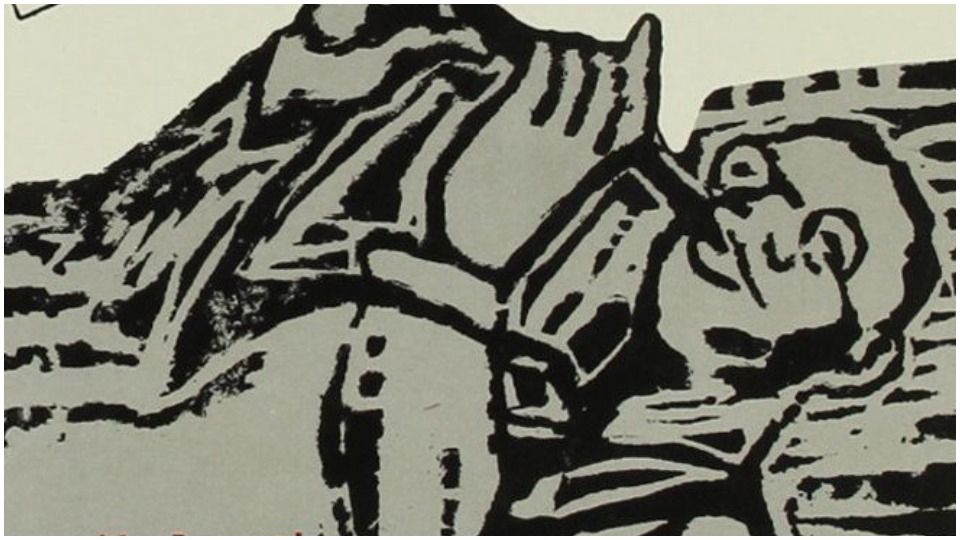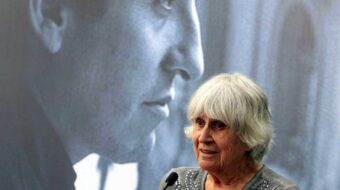
People’s World readers offer their take on a number of recent articles featured in our pages. The comments below have been proofread and edited for length. Join the discussion on the PW website and on Facebook. Your thoughts could be the next to appear in this space.
Re: Sidney Finkelstein: An appreciation of the great Marxist cultural critic
Henry Lowendorf says:
It is such a pleasure to have people’s culture back in People’s World. Some years back, I started reading Jazz: A People’s Music but became frustrated at not being able to hear the vast treasure of music Finkelstein was describing. How impoverished is reading a verbal description of what must be sensed through the ears. Why can’t others enjoy something like the seminar Finkelstein gave Rosenberg? Accompanying lectures with examples is so much richer. I am reminded of Leonard Bernstein’s fabulous TV Omnibus music programs from the 1950s, which can now be purchased.
Many of the pieces referred to in Finkelstein are freely available on YouTube. It could be done.
Editor’s Note: YouTube links for many of the performances Finkelstein referred to are available in the article.
Re: Sidney Finkelstein: An appreciation of the great Marxist cultural critic
Barbara Russum says:
As I read this article, I noticed no women were mentioned except Billie Holiday, considered by many to be the greatest jazz vocalist of all time. I saw in the news that there was just a session at the 2018 Winter Jazzfest Talks series “Jazz and Gender: Challenging Inequality and Forging a New Legacy,” where a panel discussed the challenges of being a female instrumentalist. Among the participants were bassist and singer Esperanza Spalding, percussionist Terri Lyne Carrington, trumpeter Arnetta Johnson, and political activist, author, and professor Angela Davis. Spalding argued that male professors, bandleaders, and promoters of jazz should lead the rest of the music world by example: “Men in positions of power in the jazz world are influencing what makes it out into the arena of ‘fringe’ music, which then infiltrates more popular modes, popular aesthetics of commercial music.”
Re: Why does Mueller appear to be lightening up on Steve Bannon?
Susan Vago Webb says:
This is factually wrong and mixed up. During Watergate, Archibald Cox was a special prosecutor appointed by the Justice Dept., just like Mueller. And Cox was fired by Nixon. Neither Mueller nor Cox are/were beholden to Congress. The independent counsel law was passed by Congress after Watergate, and it is no longer in effect, so that idea is moot anyway, from what I can see. This article is full of speculation, not facts, that undermines the important role that Mueller’s investigation could be playing in exposing Trump’s many serious and criminal misdeeds. Mueller’s probe should be supported as part of a struggle to save some basics of democracy in our country.
Re: What “Darkest Hour” doesn’t tell you about Winston Churchill
Norman Markowitz says:
A few additions. First, Churchill, shortly before the Nazi surrender, asked the reluctant British High Command to develop a plan to launch war against the Soviets. The British military dubbed the plan “Operation Unthinkable,” and there was never a serious chance that it would be implemented. But it called for an attack on the Soviets on July 1, 1945, essentially a “blitzkrieg,” with over 40 mostly U.S. and British divisions but including over 100,000 surrendered Wehrmacht [German military] troops. The “plan” became known when documents were released in the early 21st century.
Shortly before that, Churchill began to use the term “Iron Curtain” while he was still Prime Minister to encourage Truman, the new U.S. president, to challenge the Soviets in the occupation of Germany. He also wanted U.S. forces to “beat” the Soviets to Berlin, which General Eisenhower strongly opposed as it would have disrupted the overall strategy and cost tens of thousands of U.S. lives.
Churchill, I and other historians believe, picked up the term “Iron Curtain” by reading daily intelligence reports on German propaganda. Joseph Goebbels used the phrase in his magazine, Das Reich, denouncing the Yalta agreement as a settlement to let the Soviets establish an Iron Curtain over Eastern and Central Europe where they would “slaughter whole peoples” with the applause of “the Jewish Press.”
Churchill removed the anti-Semitism from Goebbels’ argument but kept the phrase and the basic point, using it over and over again. Even before his Fulton speech, the term was used by Allen Dulles of OSS intelligence at the end of 1945 in occupied Germany. Dulles, John Foster Dulles’ brother, would later head the CIA under Eisenhower (he was removed by Kennedy after the Bay of Pigs).
There is one every important point which is rarely noted in NATO bloc countries—the famine in Bengal which Churchill both covered up, rejecting the reports of his own colonial officials, censoring journalists, even rejecting U.S. and Canadian food aid. There is debate over how great the loss of life was in the famine, but Indian sources put the number as high as three million. Churchill is reported to have said privately that he would not say there was a famine “until Gandhi starved to death.”
Finally, there is one, and only one, important point I would make on which Churchill deserves the praise and respect of all anti-fascists. Unlike Chamberlain and most of the other political leaders of British capitalism/imperialism, he was willing to fight rather than appease and then collaborate with the fascist Axis powers. He did so to save the British Empire, and after the Battle of Stalingrad (1943), became his old self again, doing everything he could to defeat revolutionary forces everywhere, even if it meant prolonging the war in Europe and costing millions more lives.
But he did it and it deserves to be counted along with the history that remains hidden to the masses of people in NATO bloc countries
Re: Carrier worker to Trump: “You robbed me after I helped you win”
Jeffrey A. Stotsky says:
I feel zero pity for people like her. She essentially ignored EVERYTHING 45 did and said during his campaign because she thought she was going to benefit. “Who cares if he calls my neighbors rapists, drug dealers, terrorists, thugs, etc.? Who cares if he put their lives in danger? Who cares if he said he was going to leave millions of people without healthcare? As long as I was keeping my job, all is good.”
She and her kind can go scratch.

MOST POPULAR TODAY


Zionist organizations leading campaign to stop ceasefire resolutions in D.C. area

High Court essentially bans demonstrations, freedom of assembly in Deep South

Afghanistan’s socialist years: The promising future killed off by U.S. imperialism

Communist Karol Cariola elected president of Chile’s legislature






Comments